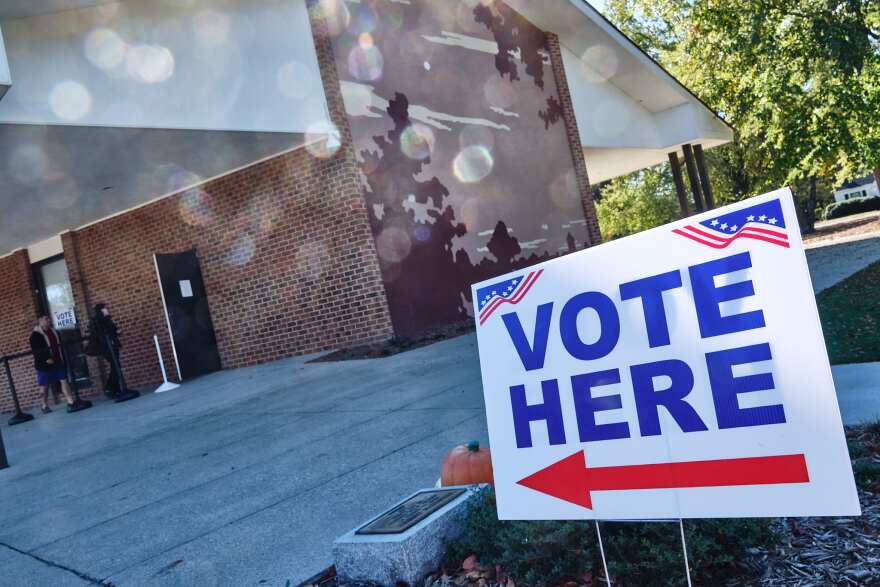North Carolinians voting in the on March 5 will be doing so under increased observation, due to the state legislature made last year to the role that a may play.
interviewed experts, a leader of a voting rights organization and a former poll watcher and leader of a nonprofit organization to understand how the new changes to a poll watching may affect voter experience.
The experts have differing views but agree that the changes could affect voters differently in different parts of the state, depending on how many poll watchers are present and how each individual poll watcher interpret the rules. Some said voter intimidation is a possibility, while others said there will be no change for voters.
“It might feel like nothing or it might feel like they’re being watched,” said Christopher Cooper, a professor of political science and public affairs at Western Carolina University.
Voters must note that “poll watchers are not allowed to see who they voted for and they’re not allowed to infringe on your privacy, but you’re going to have more people with more movement in a small space,” Cooper said.
While the did not increase the total number of poll watchers present at a voting place, it did expand the powers of the existing three poll watchers allowed per political party.
Before the new law passed, no more than one of the three poll watchers per party could be an “at large” observer — an observer appointed countywide or statewide and not to a particular site, while every site could have two observers designated specifically for that site, according to Pat Gannon, spokesperson for the North Carolina State Board of Elections. The changes in the new law enable all poll watchers, up to three at each site, to serve as “at large” observers.
“Observers are not allowed to ‘interfere with the privacy of any voter or the conduct of the election,’” Gannon said, quoting the statute. “State and federal laws make it a crime to intimidate voters or election officials, and that applies to observers and anyone else at the voting place.
Limits on what a poll watcher can do
The N.C. State Board of Elections website what poll watchers are allowed to do and what they should not be doing.
Poll watchers are to take notes on an electronic device, listen to “non-private conversations between a voter and election official” in a voting place, move around the voting place and curbside voting area with some limitations, leave and reenter voting enclosures, communicate through their phone outside voting enclosures, witness opening and closing procedures at voting places and take photographs inside a site before voting begins and after voting ends.
But poll watchers are to interfere with a voter’s privacy, look at, photograph, videotape or record an image of a marked ballot, try to see how a voter voted, photograph or record the image of any voter in the voting enclosure, restrict access to the voting place, harass or intimidate voters or engage in electioneering or “wearing campaign paraphernalia” among other things they should not be doing.
The Board voter intimidation as “any time a voter feels harassed or intimidated at a polling place.” It voters who “feel harassed or intimidated at a polling place” to an election official immediately.
Effect on voter experience
The changes will not affect the vast majority of voters, according to Steven Greene, a political science professor at North Carolina State University in Raleigh.
But, it raises “the likelihood that in some small minority of precincts” some “bad situations” could occur, such as voter intimidation or bad experiences for voters, Greene said.
Poll watchers have “more freedom of movement now than they did before,” Cooper said. It could feel like an increased presence of poll watchers for some voters just because they can move more openly, according to him.
“A voter may feel more watched and a poll worker may also feel more watched,” he said. “My guess is that there are going to be differences across counties and sites and different poll watchers are going to view their role differently.”
But recruitment is a problem for political parties, so the number in place at each site depends on whether they are able to get as many poll watchers as they are allowed, Cooper said. This could pose a challenge particularly for rural counties, he said.
Jay DeLancy, has served as a poll watcher in more than a dozen elections and is the executive director of the , a Fuquay-Varina-based organization. DeLancy said he has never had a situation in the past where a voter was intimidated by his being there as an observer.
“There’s really no change for voters,” he said. “I think the whole process is invisible, granted there’ll be a person walking around, maybe with a clipboard, but they’re just walking around and looking.”
DeLancy said he’s happy with the changes and said that the new law clarifies a poll watcher’s responsibilities. It “makes it a lot safer for poll observers now” in case they are “getting falsely accused,” he said.
Jeff Loperfido, the chief counsel of voting rights at the , a Durham-based nonprofit group, also said nothing should be all that different for voters from their normal voting experience with the changes made to poll watchers’ roles.
“If voters have any issues with the conduct of a poll observer, they should be informing poll workers, and potentially contacting the county board afterwards,” Loperfido said. “But the observers themselves are not permitted to get close enough to observe how a person is casting a ballot.”
Poll watchers are not supposed to be talking to voters, or interacting with them in any way, nor should they be interfering with the voters’ ability to move around the voting enclosure, he said.
This first appeared on and is republished here under a Creative Commons license.





